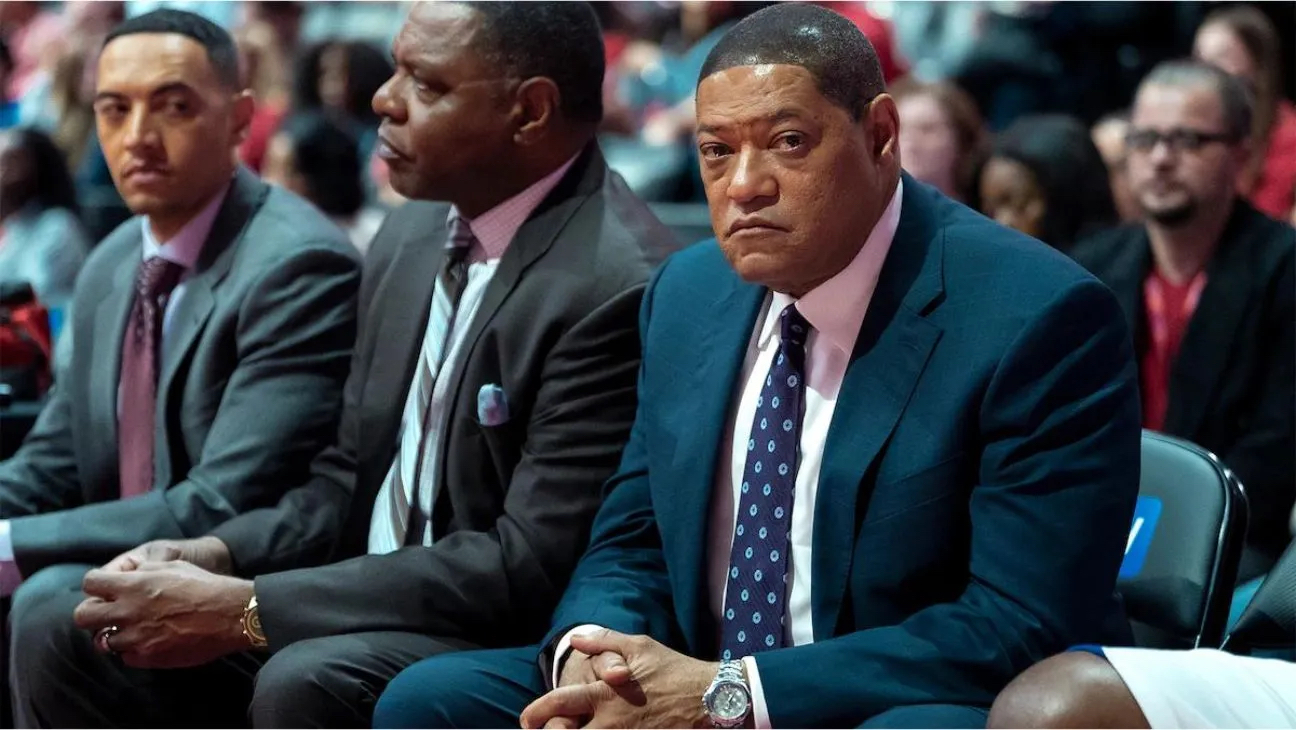
Next TV's weekly self-indulgent deep dive into TMT topics big and small… Mostly small…
DANIEL FRANKEL: Good Friday afternoon to you, David Milhouse Bloom! (I took a wild guess at your middle name. Close?) A lot of ground to cover with our latest weekend column. The NBA’s big, new, 11-year, $76 billion TV deal looks close to finalized. Bally Sports as we know it looks cooked. David Zaslav, who cancelled or sold most of Max’s shows, just raised the price. And Pat Sajak has retired.
But I want to talk about those really bad NBA Finals numbers first. A Game 1 in the historic Boston Garden (well TD Garden, anyway) yielded an average audience of only 10.99 million viewers, the worst Finals opener since LeBron was an overmatched pup against the mid-market San Antonio Spurs in 2007. The NBA and Disney/ESPN tried to get cute with the spin — the 20.3% audience share was actually the best for a Finals opener ever! Yeah, sure, 20.3% of what, exactly? Certainly, the game felt over by halftime … but is there something larger going on here? Some friends of mine who are about to spend $76 billion over the next 11 years want to know. Here's how ABC fared two years ago, the last time the Celtics were in the Finals, courtesy of Sports Media Watch:
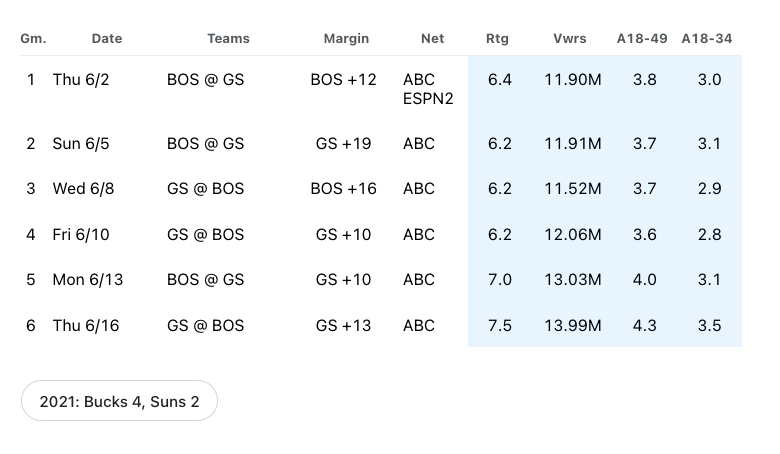
DAVID BLOOM: A bad game is a bad game, but bad timing makes it look a little worse. This Finals matchup has one big problem: the stars on both teams are extraordinary players, but not one of them is a superstar yet. There’s no MVP winner in this matchup, for instance, though surely that will come for Luka Doncic and Jayson Tatum soon enough. But since LeBron James won his first MVP in 2008-2009, he and eight other players have won the league's highest individual award at least once. None of them is in this series. Just about all of them were out of the playoffs by the second round. A single game's ratings won't set off buyer’s remorse, but as we've speculated before, at some point the bubble sports rights prices will pop. Maybe David Zaslav will hang out in his mansion gloating about how he missed a bad deal.
Bad guess on the middle name, but fun trivia: Milhouse is the middle name of disgraced former President Dick Nixon. My grandfather was the Washington, D.C., orthodontist not only for Nixon's two daughters, but the herds of children belonging to Jack Kennedy, Bobby Kennedy (including Junior before the parasite died in his brain) and Baltimore Orioles owner Edward Bennett Williams. Nixon might be the ultimate cancellation comeback.

Fifty years ago this August, Nixon lost the White House, never mind a Netflix special, resigning before he could be prosecuted or impeached for his many, many transgressions, back when even GOP politicians found presidential criminal behavior problematic. But Nixon hung around, writing books, meeting with foreign leaders, and kinda rehabilitated himself, at least in some quarters. Maybe Shane Gillis should move to Nixon’s “Western White House” in San Clemente, or the Nixon Library in Whittier, and bone up.
FRANKEL: For me, the issue with Gillis is that he is genuinely offensive … and unfunny. Gillis landed on the cancellation rocks during the pandemic, losing his SNL gig after making obviously offensive (and yes, really unfunny) slurs against gays, Asians, Jewish folks and other non-“alt-right groups I can f*** with” on his podcast in 2018. TMZ put together a damning ”greatest hits“ compilation here:
Gillis, 36, has somehow crawled his way back, producing several successful comedy specials for Netflix and hosting Saturday Night Live in February. His self-financed sitcom, Tires, was “No. 10 in the U.S.” on Friday on Netflix, which picked up a second season even before the first dropped.
As I wrote months ago, I watched an entire episode of Tires — Gillis posted it on YouTube three years ago — and I didn't laugh a single time. I watched his 2023 comedy special, Beautiful Dogs, and it almost seemed like he was trying to be offensive with sophomoric jokes about rape and the penises of Black men.
It's like the Mechanicsburg, Pennsylvania, native has this notion of how raunchy ’80s-era comedy was, and he’s the one who's going to bring it all back — like the Tom Brady Roast theory championed by many right-wing culture warriors. Being a man of a certain age, I'm actually OK with that … in theory. But many of the comics, and some of the amateurs, on the Brady Roast were cruel, offensive … and funny.
Getting back to what you were referencing, last week, several Asian-American groups met in L.A.’s Chinatown to ask Netflix to drop Tires and for Bud Lite to stop sponsoring Gillis, citing the six-year-old ethnic slurs. “If you duck a few years, slowly build your career back up and continue on as if nothing had happened, you can come back even stronger than ever,” Guy Aoki, founding president of Media Action Network for Asian Americans, said. I don’t understand the niche segment of the “free” comedy market that brought this reckless hack back to semi-stardom, but a statute of limitations on cancellation would seem to apply here. Perhaps Gillis’ success has more to do with what he represents to Grievance Nation versus whether he actually makes anyone laugh. I suspect the issue is on the demand side. My wife, the mother of an incoming Berkeley transfer student, recently stumbled on this nine-year-old video (see below) from a group of Asian-American student comics, laying out and eviscerating some of the stereotypes they've observed in their time in the University of California system. I don't know how, but this benign sketch could potentially be offensive to someone. It’s marginally funny to a specific audience of UC students, and that’s all it’s meant to be. Over dinner, my wife tried to share the YouTube clip on her phone with with our Gen-Z son and his girlfriend. Both recoiled — “too racist!” Well, if they'd open their minds to look at just a few seconds of the clip … not really …
There’s huge contextual difference between mindlessly parroting slurs and an ethnic group relating its own American experience through comedy. The fact that a large portion of the young-adult market (as represented by our focus group of two!) can't recognize the chasm probably gives rise to the absurdity of Gillis' success. I forgive my son, whose pretty funny himself, but maybe COVID took away all our sense of taste? In the 1980s, these things tended to sort themselves out. There used to be a weekly Wednesday comedy night at my university's student union in the San Fernando Valley. Comics who would appear regularly in Hollywood clubs would pick up an extra paycheck — partly underwritten by the Student Union letting me and my underage friends pay $8 for pitchers of Löwenbräu. One night, this guy arrived on stage, completely covered in blue makeup — called himself the “Blue Guy” — and let loose one of the most hateful, antisemitic rants I'd ever heard in my 19 years of largely discounting my Jewish identity from my school chums, many of whom were raised by overtly racist, antisemitic parents in that era of the Mid-Valley.
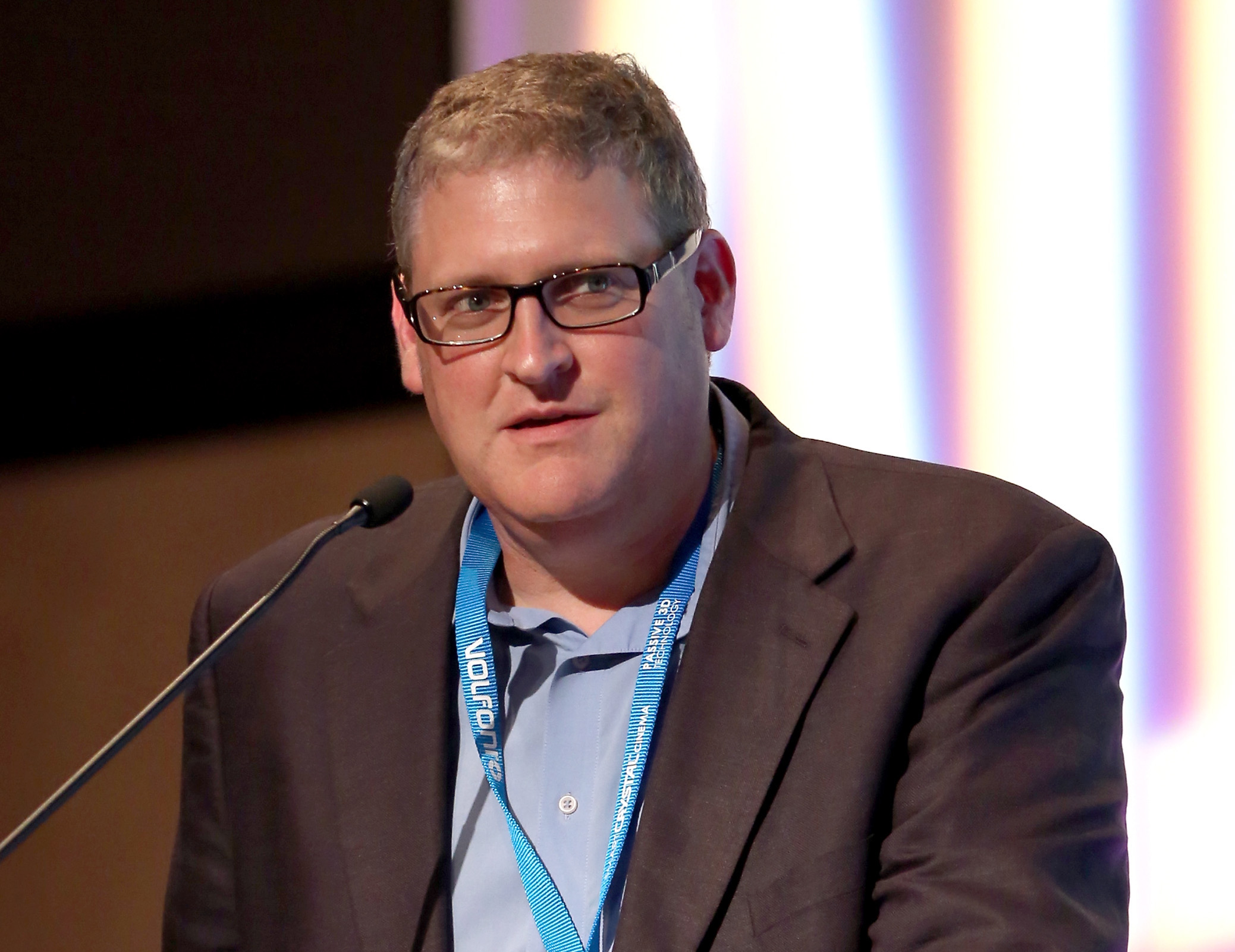
After the Blue Guy absolutely bombed, I went to recycle some Löwenbräu in the men’s room. There, in front of the restroom mirror, stood this vile, talentless shamble, aggressively rubbing off blue face paint while whining out loud about how shitty the crowd was at the CSUN Student Union. Never heard from his hateful, unfunny bitch-ass again.
BLOOM: Some things are beyond understanding. Perhaps Gillis’ career trajectory is one. Another thing apparently beyond understanding: the true value of Hulu. The long, mostly private value-setting process between Disney and Comcast continues. Comcast’s investment bankers contend Hulu is worth $40 billion Disney i-bankers says it’s worth $27.5 billion. Disney is basically saying Hulu hasn’t gotten a nickel more valuable since the two companies announced an initial agreement back in 2019, six months before Disney Plus even launched (not to mention Peacock, Apple TV Plus, Paramount Plus, etc.).
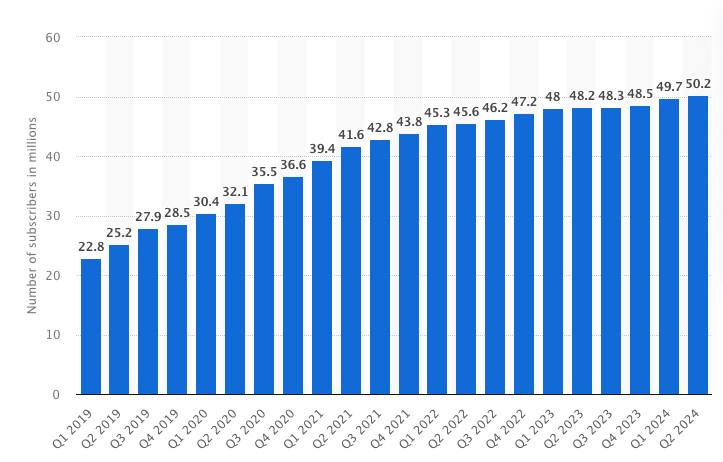
Disney has already paid about $8 billion for Comcast’s one-third share, so the fight is really about one-third of the difference between the two prices, around $4 billion. Feels like it’s worth more than a five-year-old guesstimate, given all that’s happened since. Among other things, its paying subscribers have more than doubled, it’s crucial to Disney’s bundled streaming strategy, is providing many of Disney's Emmy contenders, and is now also available directly through Disney Plus. There’s a quasi-comp on price over at Paramount, but given the craziness of that drawn-out process (Shari’s reportedly getting cold feet), not sure the $26 billion Apollo-Sony proposal is useful here. So, what’s a long-time, widely distributed, and generally successful and growing venture worth at this point in the streaming wars?
FRANKEL: I don't have the banking skills to possibly conjecture what Hulu — or Paramount, for that matter — should be valued at. But I can squint my eyes real hard, pretend it’s 2021 — and the pandemic is still going, and we're kind of miserable … but it’s OK, because the kids are still at home and there's plenty of good stuff to stream on TV. I haven't looked forward to anything recently as much as I've anticipated the debut this past week of FX/Hulu's Clipped, the six-part limited-series docudrama starring Ed O'Neill as the Los Angeles Clippers’ bizarro former owner, Donald Sterling, and Laurence Fishburne as the head coach, Doc Rivers, caught in Sterling’s tsunami. As the L.A. Times’s Bill Plaschke noted, it’s the only time the Clippers have ever been on television in June. I think Fishburne is great … but I’ve been a little underwhelmed through the first two episodes.
I’ll also say this about Doc Rivers — the last time he had the Celtics in the Finals, June of 2010, they averaged over 28 million viewers in a Game 7 loss to Kobe Bryant and the L.A. Lakers.
BLOOM: Unfortunate that FX/Hulu clanked one off the backboard with Clipped, given the rich source material. But underachieving here is kind of perfect, given the franchise’s implacable history of bad luck and worse management under Dirty Don's ownership. That was some bad teams, man, though when they played in the long-gone Sports Arena, you could work your way down from the cheap seats to sit practically on the court. No one, least of all security, cared. You might even hear a few Billy Crystal jokes from his courtside seats, though even he couldn’t explain why he actively chose to become a Clippers fan.
If you’re looking for an entertaining streaming option, I strongly suggest Netflix’s Hit Man, directed by the reliably excellent Richard Linklater. It's based very loosely on a real-life mild-mannered philosophy professor who transformed himself into a fake hit man to help police sting people trying to kill off those no longer dear to them. Hot new hunk Glen Powell continues to prove his range as a star (and co-writer!) alongside a truly delightful Adria Arjona as his life-complicating new love. I and my former film critic/film teacher spouse both loved it. Hit Man is arguably the best criminal rom-com I've seen since Steven Soderbergh's Out of Sight. That 1998 film featured the last generation’s Glen Powell, George Clooney, alongside an inexplicably entertaining Jennifer Lopez and a truly epic collection of great character actors (Don Cheadle, Ving Rhames, Steve Zahn, Albert Brooks, Dennis Farina, Luis Guzman, Catherine Keener, et al). So, Hit Man sits in great company, to my mind.
The film spent two weeks in U.S. theaters, unusual for Netflix this time of year rather than awards season. That was probably a sop to Linklater, one of the era’s great indie innovators (Boyhood, Waking Life, the Before trilogy). Hit Man did get a premiere at the Venice Film Festival last fall, so there's that. Hit Man's brief theatrical stay is bad news for theaters, though. Box office continues to be horrible, with Memorial Day Weekend receipts the worst since the mid-1990s. Theater owners really could have used a long run by an enormously likable film featuring a much-loved director and two rising stars. It's the kind of mid-list romantic, smart movie that could draw in grownups out on date night, while filling out the multiplex’s offerings beyond the blockbuster of the week. Instead, you and everyone else gets to stay in their own air conditioning, dodge the heat dome’s depredations, and try to figure out what Powell’s next great career move might be. Dude is golden right now.
FRANKEL: Powell was also in Linklater’s 2016 semi-autobiographical Everybody Wants Some, which loosely chronicled the filmmaker’s arrival at Sam Houston State in the late 1970s as a freshman pitcher. As I sign a lease in Santa Barbara this Sunday morning for our own freshman pitcher, I'm definitely reminded more of Powell’s smart-aleck Finnegan versus Blake Jenner’s forthright Jake Bradford, who is loosely based on the young Linklater.
Well we did it again — another rabbit hole. And we avoided talking about the new S&P Global Ratings report indicating that Comcast and Charter might have presented a flawed model to smaller cable companies on just how profitable MVNO-based wireless can be. Seems only the largest cable companies can make the economics truly zing. And we didn't discuss the chutzpah it takes to raise Max pricing … after spending the last two years eviscerating it.
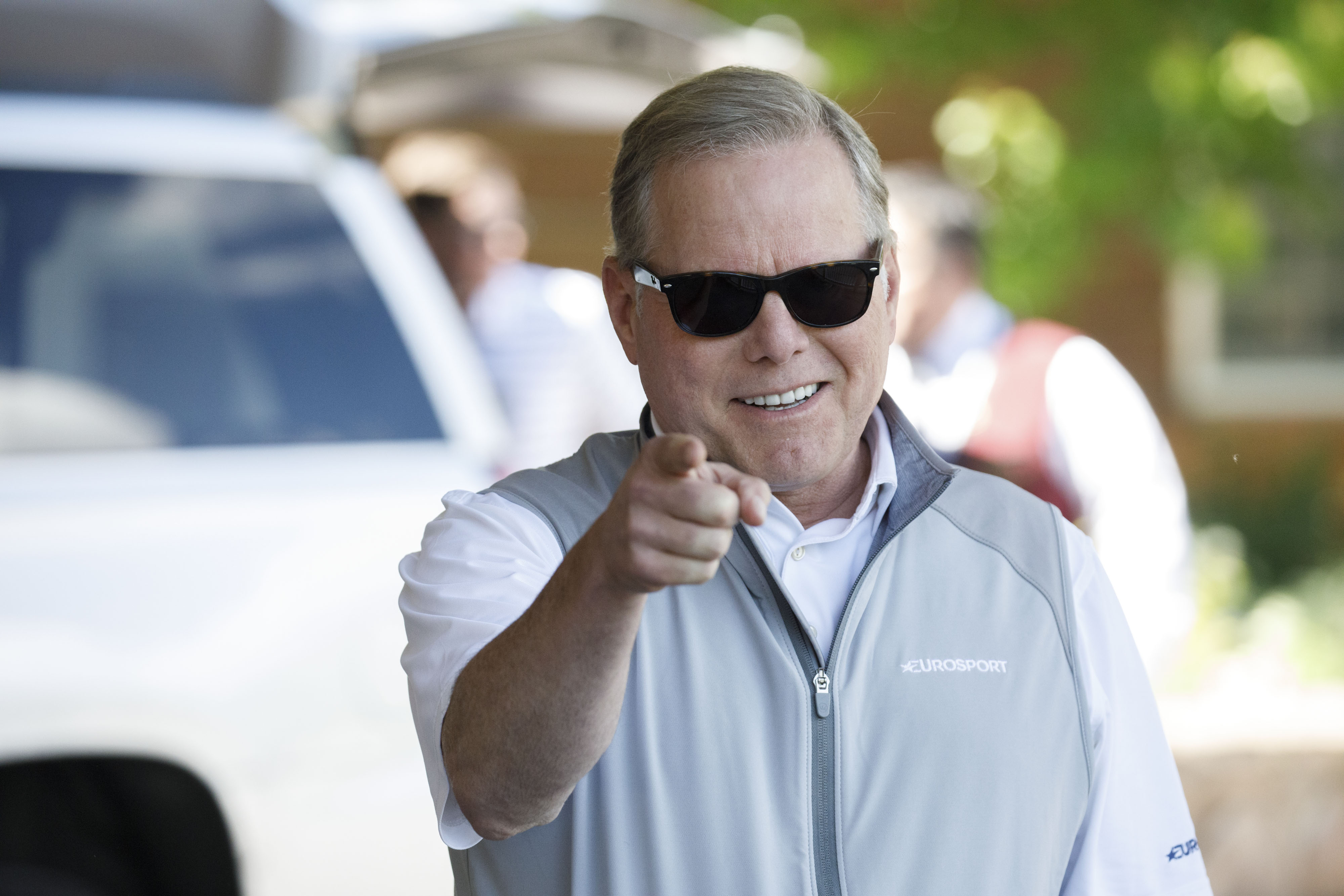
BLOOM: One last bit about the Max price rise for its ad-free option: This looks like a pivot for Max from quality (i.e., HBO Emmy king) to ad-supported basic cable (i.e., all those Discovery reality shows). Pushing most customers to ad-supported tiers means higher margins, lower perceptions of programming quality and all Zaz. You get what you pay for.







